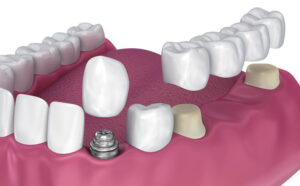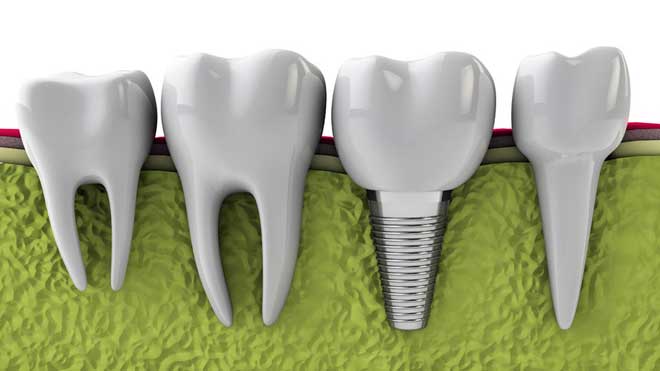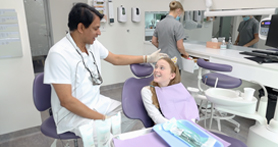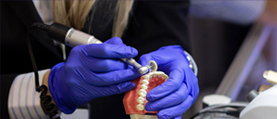
Dental implants are an effective and long-lasting solution for replacing missing teeth. While the implant procedure itself is a significant step in restoring your smile and oral health, postoperative care is essential to ensure proper healing and long-term success.
One aspect of postoperative care involves modifying your diet to accommodate your newly placed implants. In this blog post, we’ll explore the foods you should eat after getting dental implants and why they are essential for optimal healing and recovery.
Foods For Immediate Consumption After Getting Dental Implants
After getting dental implants, it’s important to follow your dentist’s instructions carefully to promote healing and reduce the risk of complications. In terms of diet, there are certain foods that you should eat immediately after getting dental implants to ensure proper healing.
Here are some recommendations:
- Soft foods: After dental implant surgery, stick to soft foods that are easy to chew and won’t irritate your gums or the implant site. Examples include scrambled eggs, mashed potatoes, yogurt, smoothies, and pureed soups.
- Cold foods: Cold foods can help soothe any discomfort or swelling you may experience after surgery. Try eating ice cream, popsicles, or chilled fruit to help reduce inflammation and discomfort.
- Nutrient-rich foods: Eating a nutrient-rich diet can help promote healing and reduce the risk of infection. Focus on foods that are rich in protein, vitamins, and minerals, such as lean meats, fish, leafy greens, and fresh fruits.
Foods For Consumption After A Few Weeks of Getting Dental Implants
After getting dental implants, it is important to continue eating soft foods for the first few weeks to allow proper healing. As the healing process progresses, you can gradually reintroduce firmer foods to your diet. Here are some recommended foods to eat in the weeks after getting dental implants:
- Soft Proteins: Soft proteins like cooked fish, ground beef, or chicken are easy to chew and provide essential amino acids for healing. Avoid tough or fibrous cuts of meat.
- Cooked Vegetables: Soft, cooked vegetables like green beans, carrots, and squash can provide important vitamins and minerals. Avoid raw vegetables or those that are difficult to chew.
- Soft Fruits: Soft fruits like bananas, avocados, and melons are easy to eat and can provide essential nutrients like vitamin C. Avoid hard fruits or those with seeds that can irritate the surgical site.
- Eggs: Scrambled or boiled eggs are easy to eat and provide essential protein for healing. Avoid fried eggs or those cooked with added fat.
- Soft Cheeses: Soft cheeses like ricotta or cottage cheese are easy to eat and provide calcium for healing. Avoid hard or aged cheeses that may be difficult to chew.
- Smoothies: Smoothies with soft fruits, yogurt, and protein powder can provide essential nutrients while being gentle on the surgical site. Avoid using a straw to prevent dislodging the blood clot.
- Oatmeal or Cream of Wheat: Hot cereals like oatmeal or cream of wheat can provide essential fiber and nutrients while being easy to eat. Avoid adding nuts or seeds that can irritate the surgical site.
- Pasta: Soft pasta like macaroni or noodles can provide essential carbohydrates while being easy to chew. Avoid adding tough or chewy meats or vegetables.
- Soft Breads: Soft bread like white bread or rolls can provide essential carbohydrates while being easy to chew. Avoid tough or crusty bread that may irritate the surgical site.
Foods To Avoid After Getting Dental Implants
After getting dental implants, it’s important to avoid certain foods that may irritate the surgical site, disrupt the healing process, or damage the implants. Here are some foods to avoid after getting dental implants:
- Seeds and Small Food Particles: Small food particles like seeds, such as those found in strawberries or sesame seeds, can get trapped around the implant area. Avoid consuming foods that contain small, hard particles.
- Carbonated Beverages: Carbonated drinks can create excess pressure and discomfort in the mouth. Avoid sodas, sparkling water, and other fizzy beverages that may affect the healing process.
- Alcohol and Tobacco: Both alcohol and tobacco can delay the healing process and increase the risk of complications. It’s advisable to refrain from alcohol consumption and avoid smoking or using tobacco products during the healing phase.
- Hot and Spicy Foods: Hot and spicy foods can cause irritation and discomfort in the mouth. It’s best to avoid them until your implant area has fully healed.
- Straw Use: Refrain from using a straw when consuming beverages. The suction created by straws can dislodge blood clots and hinder the healing process.
- Hard Breads and Crackers: Hard bread and crackers require significant chewing and can potentially damage the implants. Opt for softer bread varieties or consider toasting them to make them more manageable.




